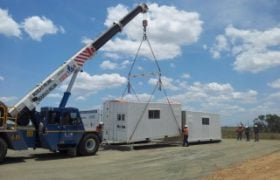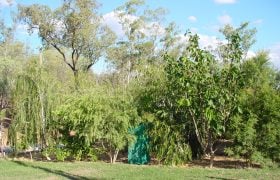Research
Arris has a strong commitment to research and education in the water sector. Arris has strong links to the Central Queensland University and the Waite Campus of the University of Adelaide. Arris has also co-developed short courses and provided industry placements for the ICE WaRM Program (www.icewarm.com.au).
Clients with a non-typical wastewater or water problem have benefited by examining the issues via a thorough and detailed research program considering a range of options, including nature based solutions. Arris understands that the majority of treatment technologies are developed for domestic applications and that treating non-typical water can be challenging.
Arris has undertaken a variety of research projects for clients in the mining, industrial, and residential sectors. Arris can conduct these research projects independently or in collaboration with University research programs.
Current Industry Scholarships:
Arris has sponsored two scholarships at CQUniversity at the Institute for Resources Industries and Sustainability (http://www.cqu.edu.au/research/research-organisations/institutes/resource-industries-and-sustainability).
Tony Kodel is researching sodicity reduction at the Teys-Bros Cargill Hide Processing Facility in Murgon, Queensland. This industrial site produces recycled water that is beneficially reused in an irrigation scheme. Tony’s project will be researching the SAR reducing ion exchange media installed at the site by Arris Water. His research will examine different regeneration techniques for the media and the impacts of biofilms on exchange process. The aim of the project is to increase the long-term sustainability of the recycled water.
Oscar Santiago is researching the sustainable treatment and reuse of Coal Seam Gas (CSG) co-produced or associated water at a WestSide gas lease. The major issues with CSG water are sodicity and salinity. Oscar and Arris Water have developed a treatment plant which combines RO and ion exchange technologies. These technologies address SAR, salinity and other contaminants of concern such as hydrocarbons. As part of this project beneficial reuse agreements for the use of the recycled water will be developed. The aim of the project is to sustainably treat and reuse CSG water.
Additional Research Projects:
Ben Kele, as part of his Master’s research at the Centre for Plant and Water Sciences, developed the Rhizopod® technique, formerly promoted as the Recirculating Evapotranspiration Trenches (RET) system. The system was first commercialised in 2005. This is an on-site/decentralised wastewater treatment and reuse system that is typically used in areas with unsuitable soils, set-back distance constraints, or where a no-release of treated effluent outcome is desired. Arris has continued researching the RET system and found new applications will make impressive gains in cost efficiency.
- Ben Kele, Durnford Dart, and Ted Gardner inspect the Woodfordia Bamboo Plantation (Dec 2018)
- Woodfordia bamboo plantation (Dec 2018)




